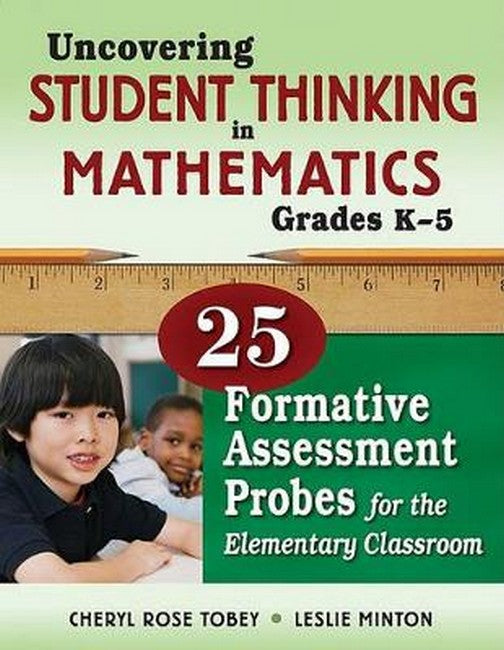Cheryl Rose Tobey is a senior mathematics associate at Education Development Center (EDC) in Massachusetts. She is the project director for Formative Assessment in the Mathematics Classroom: Engaging Teachers and Students (FACETS) and a mathematics specialist for Differentiated Professional Development: Building Mathematics Knowledge for Teaching Struggling Students (DPD); both projects are funded by the National Science Foundation (NSF). She also serves as a director of development for an Institute for Educational Science (IES) project, Eliciting Mathematics Misconceptions (EM2). Her work is primarily in the areas of formative assessment and professional development. Prior to joining EDC, Tobey was the senior program director for mathematics at the Maine Mathematics and Science Alliance (MMSA), where she served as the co-principal investigator of the mathematics section of the NSF-funded Curriculum Topic Study, and principal investigator and project director of two Title IIa state Mathematics and Science Partnership projects. Prior to working on these projects, Tobey was the co-principal investigator and project director for MMSA's NSF-funded Local Systemic Change Initiative, Broadening Educational Access to Mathematics in Maine (BEAMM), and she was a fellow in Cohort 4 of the National Academy for Science and Mathematics Education Leadership. She is the coauthor of six published Corwin books, including seven books in the Uncovering Student Thinking series (2007, 2009, 2011, 2013, 2014), two Mathematics Curriculum Topic Study resources (2006, 2012), and Mathematics Formative Assessment: 75 Practical Strategies for Linking Assessment, Instruction and Learning (2011). Before joining MMSA in 2001 to begin working with teachers, Tobey was a high school and middle school mathematics educator for ten years. She received her BS in secondary mathematics education from the University of Maine at Farmington and her MEd from City University in Seattle. She currently lives in Maine with her husband and blended family of five children. Leslie Minton is currently a mathematics consultant for Math Matters 2, Portland, Maine. She is currently providing individualized mathematics professional development to area schools and districts PK-8, as well as, teaching Math Methods courses at the University of Southern Maine. Previously, Leslie was a Project Director for the Maine Mathematics and Science Alliance, Augusta, Maine. She provided technical assistance to schools as well as designed a professional development course and diagnostic materials designed to support numeracy understanding. She is a fellow of the second cohort group of Governor's Academy for Science and Mathematics Educators. She has taught regular and special education for grades 4-12. Leslie receive her B.S. in elementary and special education from the University of Maine at Farmington and her M.Ed in curriculum, instruction and assessment from Walden University. Currently she is completing a M.Ed program, Educational Design and Media Technology, Full Sail University.
Request Academic Copy
Please copy the ISBN for submitting review copy form
Description
Foreword by Page Keeley Preface Acknowledgments About the Authors 1. Mathematics Assessment Probes 2. Instructional Implications 3. Structure of Number Probes: Place Value, Number Charts, and Number Lines 4. Structure of Number Probes: Parts and Wholes and Equality 5. Structure of Number Probes: Computation and Estimation 6. Measurement, Geometry, and Data Probes: Quadrilaterals Resource: Notes Template: QUEST Cycle References Index
"Finally, a book to help teachers differentiate math instruction using their own, individualized, current data! This book provides practical, simple-to-use formative assessments that allow teachers to identify areas of difficulty, correct misconceptions, and guide learning." -- Renee Peoples, Fourth-Grade Teacher and K-5 District Math Facilitator "This book is a much-needed resource for beginning and veteran teachers alike." -- Randy Wormald, Math Teacher "This book offers ways for teachers to gain more insight into what their students know and don't know." -- Carol Amos, Teacher Leader/Mathematics Coordinator

